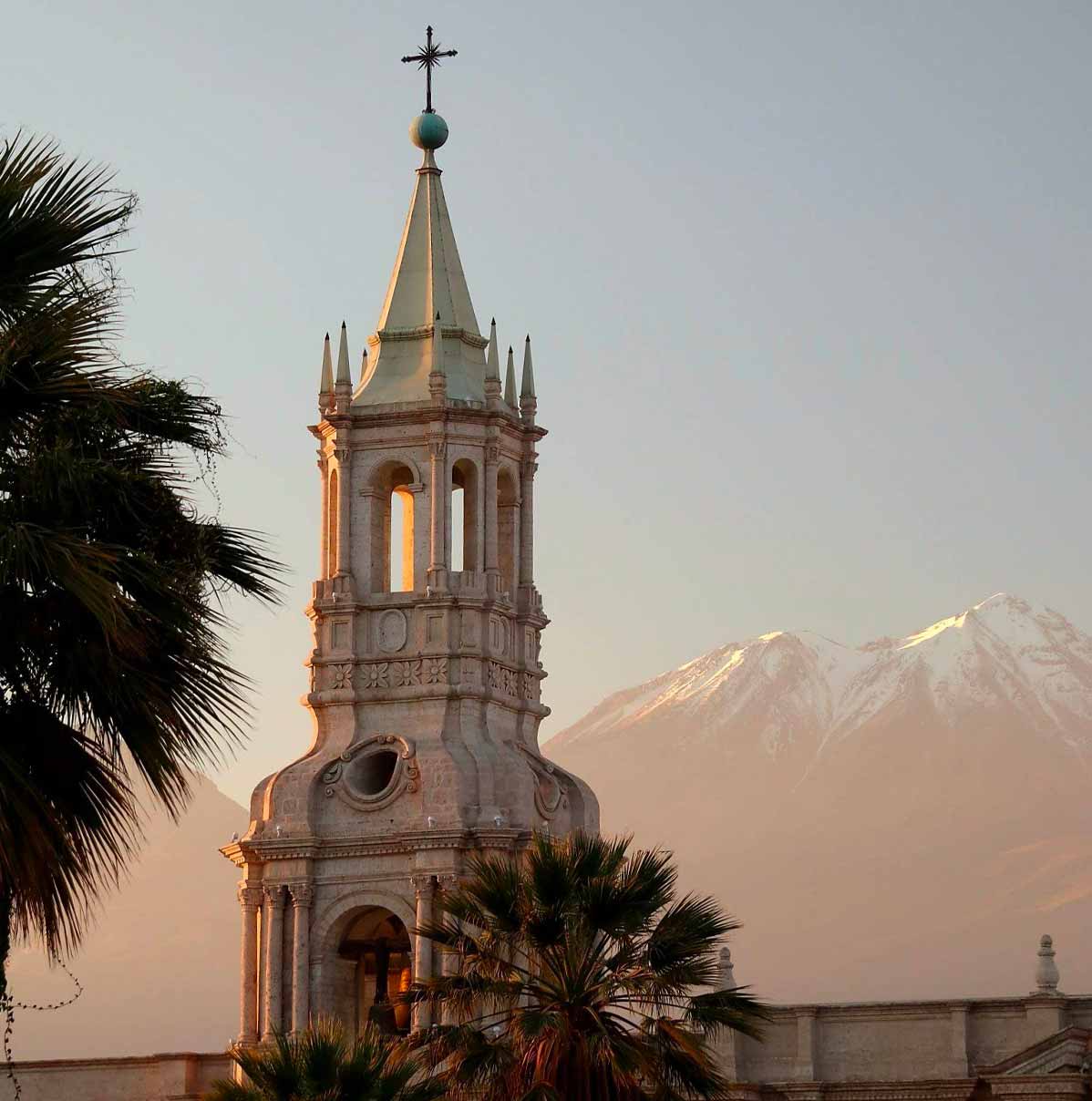The official Arequipa Travel Guide 2025 to help you start planning your trip to Arequipa. Learn the history of the region, the different seasons, how to get there and back and how to travel through the city and more... Here's everything you'll need to know about Arequipa!
Home to the Colca Canyon
Tours and Trek
possible.
Best way to get to Arequipa
Fly with Latam Airlines or take Peru Hop bus
Best tour companies for Colca Canyon
View best options in findlocaltrips.com!

Around the year 1170, a large Incan army led by Mayta Cáypac discovered a large, uninhabited valley. Taken aback by the natural beauty of the valley, Mayta Cáypac decided to have his people settle here and named it “Ari-quepay” (let’s stay here). This new Inca land was then divided amongst 3,000 Inca families, who founded many towns in Arequipa such as Cayma, Tiabaya and Yanahuara.
On August 15th 1540, the modern city of Arequipa was founded by Garcí Manuel de Carvajal, an emissary of the conqueror Francisco Pizarro. One year later, the king of Spain, Charles V declared Arequipa as a city and gave it its coat of arms that remains to his day.
On July 21st, 1821, Don José de San Martín declared Peruvian independence from the Spanish conquistadors. During the 19th century, Arequipa became known as the “Land of leaders”, as a result of the courage of the Arequipeño rebels.
Arequipa is located in the southern part of Peru and is bordered by Cusco in the north, Puno in the east and Moquegua in the South. Arequipa is Peru’s second largest city behind Lima. Many buildings around the plaza de Armas were constructed using volcanic sillar from the surrounding volcanoes, giving Arequipa its nickname of “The White City”. Earthquakes are also quite common in the region. Over the past year there have been 65 earthquakes measuring 1.5 or above on the richter scale.
April to December. Very low humidity, no rainfall, and temperatures that, although they are practically the same as summer, can feel a little colder due to the dryness of the air.
January to March. During these months, there is at least a 6% chance of rain on any given day. Prepare for some chilly days, otherwise, there is nothing to worry about.
The best time to visit Arequipa is from early April to early December, with the first weeks of September having the best weather of those months. This is when you’ll experience the driest weather and the clearest skies. With that said, Arequipa’s climate is generally mild and pleasant all year round, so any time of year is great time to visit!
For more detailed information check out our Arequipa weather post!
Being one of the most visited cities in Peru, there are a few ways to get there. Bus options (Peru Hop being the favored company), flights and even trains are available to the “White City”!
For more detailed info check out our How to Get to Arequipa page!
In most cities, taxis are the easiest and best way to get around the city. Although at times the cost can be expensive, it’s worth the extra soles. We recommend using taxi apps like Uber or if staying at a hotel/hostel, asking front desk to call for a safe and reliable taxi company.
The cheapest transportation option would be to take public buses. These buses are commonly called ‘micros’ or ‘custers’ in Peru and typically have a driver and a fare collector. The fare is paid directly upon boarding the bus, and it’s advisable to carry cash, especially in coins.
If you stay near the center in Plaza de Armas, you can find places withing walking distance such as the Santa Catalina Monastery and restaurants and museums of great interest. However, there are many places to visit that require faster transportation, so this option is somewhat limited.
Driving in Peru isn’t quite like driving in other countries. Bad roads, heavy traffic, and sometimes aggressive drivers can make what is meant to be a relaxing trip stressful. With the added high cost of renting a car, it’s not recommended option.